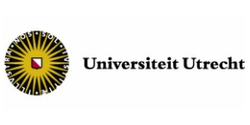PhD Position on Coastal Adaptation to Sea-Level Rise
Updated: 18 Nov 2024
How many Wadden Islands will still exist in 2100? The answer to this question depends not only on sea-level rise scenarios, but also on our ability to design clever adaptation strategies that can prolong the lifetime of barrier islands such as the Wadden Islands. Many examples exist of successful coastal adaptation to sea-level rise, but it is not yet clear how these can be scaled up, and if there are physical limitations to their effectiveness, on a landscape scale.
Your job
In this PhD project you will collect field data and use numerical models to assess possibilities of (and limits to) climate adaptation for the entire Wadden Sea coast and its islands. It is part of the new and exciting WADWAD project: a tri-lateral consortium of Dutch, German, and Danish scientists and engineers that will develop an action plan for the Wadden Sea coastal area.
You, together with the rest of the UU team, will bring in expertise on coastal geomorphology and climate change adaptation. The rest of the project includes sedimentologists, biologists, economists, and social scientists that cover topics of coastal adaptation from the paleo record all the way to cost-benefit analyses and stakeholder acceptance.
To support academic and personal development, you will follow courses and you will assist in teaching Earth Sciences at Bachelor's and Master's level. Together these activities amount to twenty percent of the contracted time.
Requirements:
We look forward to your application if you have the following qualifications:
- an MSc degree in earth, climate, or environmental sciences and engineering (or similar) with demonstrable affinity with numerical modelling of Earth surface processes;
- good skills in programming and using large spatial datasets (preferably in Matlab or Python);
- a strong interest in and ability to participate in interdisciplinary research in an international project setting;
- willingness to participate and lead fieldwork in and along the Wadden Sea coast;
- proficient writing and communication skills in English;
- enjoying working in an international environment and a multidisciplinary team of researchers.
Salary Benefits:
We offer:
- a position for one year, with an extension to a total of four years upon a successful assessment in the first year, and with the specific intent that it results in a doctorate within this period;
- a working week of 38 hours and a gross monthly salary between €2,872 and €3,670 in the case of full-time employment (salary scale P under the Collective Labour Agreement for Dutch Universities (CAO NU));
- 8% holiday pay and 8.3% year-end bonus;
- a pension scheme, partially paid parental leave and flexible terms of employment based on the CAO NU.
In addition to the terms of employment laid down in the CAO NU, Utrecht University has a number of schemes and facilities of its own for employees. This includes schemes facilitating professional development, leave schemes and schemes for sports and cultural activities, as well as discounts on software and other IT products. We also offer access to additional employee benefits through our Terms of Employment Options Model. In this way, we encourage our employees to continue to invest in their growth. For more information, please visit Working at Utrecht University.
36 - 40 hours per week
Princetonlaan 8a

